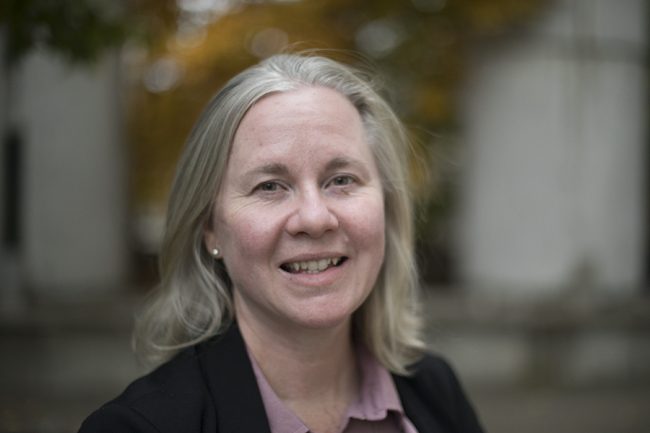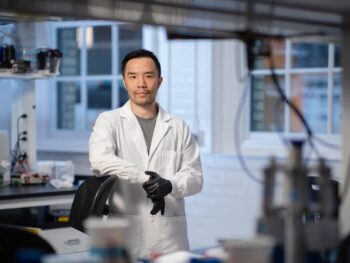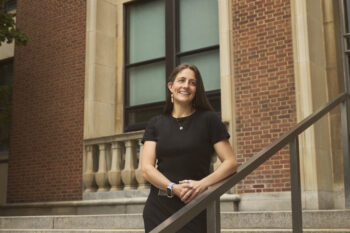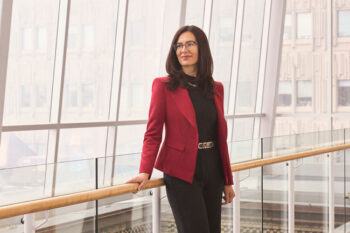Reflecting on her own first year of undergraduate studies, Professor Dawn Kilkenny (BME, ISTEP) says that the challenges she faced were not the ones she expected.
“I loved my classes, and the opportunities that came with them, such as participating in psychological studies,” she says. “But I found living in residence very challenging. I grew up in a small family, in a town of less than 1,000 people. The amount of activity and the number of people on campus were extremely overwhelming to me.”
Kilkenny was recently appointed U of T Engineering’s Vice-Dean, First Year. The role oversees a suite of programs designed to make the transition from secondary to post-secondary education as smooth as possible for students from around the world.
She brings deep experience to the role, having previously served as Associate Director, Undergraduate Programs in the Institute of Biomedical Engineering (BME), as Chair of the Biomedical Systems Major in the Division of Engineering Science (EngSci), and as EngSci’s Associate Chair, Year 1 & 2.
Kilkenny also serves as faculty advisor to Discovery, a U of T Engineering program that provides experiential learning opportunities for high school students in the Greater Toronto Area and catalyzes collaborations between graduate students, faculty and high school educators.
“My experience throughout the evolution and expansion of this program has made me more acutely aware of the gaps that exist between secondary and post-secondary learning,” she says.
“As Vice-Dean, First Year, I’ll continue working with relevant partners, both in the Faculty and at community partner schools, to design experiences to improve student transition to university.”
Kilkenny lists some of the many programs already in place through the First Year Office to help ease this transition: Guided Engineering Academic Review Sessions (GEARS) and associated Conversation Cafes, the Six Week Celebration, and the First Year Hub on Quercus, as well as regular communication through social media and the First Year News Feed.
Going forward, she aims to expand offerings, especially in the area of experiential learning, such as summer research internships.
“I believe it is important for everyone to have a ‘taste’ of research to make more informed decisions for their upper years of study, and their future careers,” she says. “I plan to focus on increasing summer research opportunities and access for first year students.”
Beyond that, Kilkenny also plans to expand summer programs and/or online learning in order to help students spread out their course loads. She also thinks there are opportunities to simplify certain administrative procedures to reduce paperwork.
Kilkenny says that one of the key issues facing students today has to do with the information ecosystem they are studying in.
“Increased access to technology in academia has flooded the post-secondary experience with a surplus of information, which makes it challenging to decide what is accurate and what is not.
“I don’t believe that students have changed — they are as creative, dedicated and resourceful as ever. But the educational environment they are navigating has changed, and along with it, the resources and tools that they need to be successful.”
This semester is the first to return to primarily in-person classes following the COVID-19 pandemic, and Kilkenny is optimistic about what that portends.
“It’s a cautious but exciting time,” she says. “COVID‑19 has helped us all learn about ourselves and how to work together more efficiently in a supportive manner. I look forward to being able to connect directly with first year students and learn about their personal educational transitions and vison for their time with us.”



